Fueling your body isn’t just part of training — it’s the foundation. Whether you’re chasing a new PR or building endurance from the ground up, a runners diet plays a critical role in performance, recovery, and overall energy. This guide unpacks what to eat and when, helping you stay strong through every mile. From carbs to timing, here’s everything you need to know to turn food into your greatest running ally.
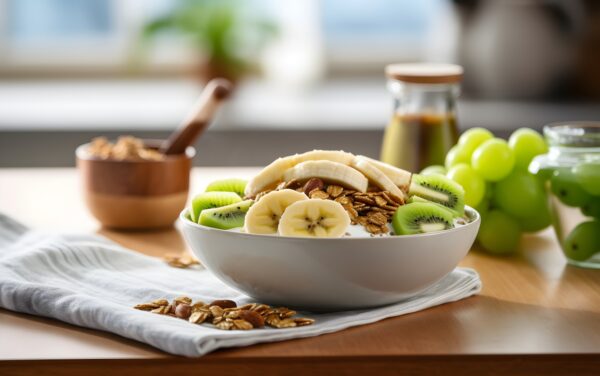
Contents
Toggle🍞 Carbs – The Engine Fuel for Runners
When you’re a runner, carbs are not the enemy. They’re your rocket fuel. Carbohydrates are stored in your muscles and liver as glycogen—the very substance that powers your legs during every run. Ever “hit the wall”? That’s what it feels like when glycogen stores are drained.
In your daily training diet, focus on complex carbs: think oats, sweet potatoes, brown rice, whole wheat pasta, and fruit. These provide sustained energy without the blood sugar crashes. Around harder training sessions or long runs, lean into easy-to-digest carbs like bananas, toast with jam, or energy gels. Timing matters too—aim for a carb-rich meal 2–3 hours before a run and a quick-releasing carb snack 30 minutes before.
But this isn’t just about macros—it’s about listening to your body. Some days, your muscles crave more. On rest days, a bit less. The beauty of a balanced runner’s diet is its ability to adapt without guilt or restriction. Remember: carbs don’t make you slow. They make you strong.
🍗 Protein – The Silent Repair Crew
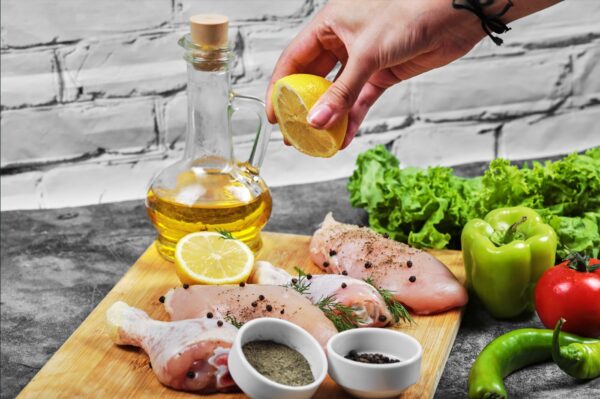
Every time you log a tempo run or crush a hill repeat, you’re creating microscopic tears in your muscle fibers. Protein is what repairs and rebuilds them—stronger than before. If carbs are your energy, protein is your recovery partner.
Aim for 1.2–2.0 grams of protein per kilogram of body weight, depending on your training intensity. Lean meats, eggs, tofu, beans, yogurt, and lentils are all fantastic sources. But here’s the real secret: don’t save all your protein for dinner. Spread it out. A bit with breakfast, a scoop in your smoothie, a handful of nuts after a run—it all adds up.
The magic happens when nutrition meets timing. Try to get a mix of protein and carbs within 30–60 minutes after your long runs. This window helps your muscles rebuild faster, reduces soreness, and keeps your training on track.
🥑 Fats – The Long-Distance Friend You Didn’t Know You Needed
Fats often get a bad rap, but for distance runners, they’re a quiet endurance hero. While carbs are your go-to for short bursts, fats fuel your body during longer, slower efforts—especially once glycogen stores dip. Think of them as your backup battery that kicks in on mile 18.
The key is choosing the right fats: avocados, olive oil, nuts, seeds, and fatty fish like salmon. These support brain health, reduce inflammation, and help absorb essential fat-soluble vitamins like A, D, E, and K.
For everyday meals, try drizzling olive oil on roasted veggies, spreading nut butter on whole-grain toast, or tossing some seeds into your yogurt. These small additions boost both flavor and function. In a runner’s diet, fats aren’t the villain—they’re a well-balanced ally.
🍊 Vitamins & Minerals – Micronutrients, Major Impact
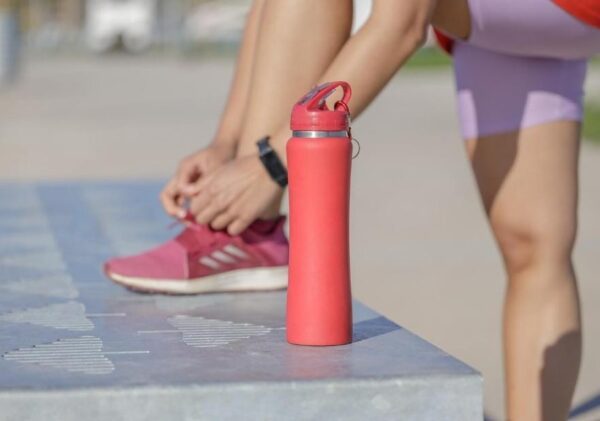
You might not feel them, but your body certainly does. Micronutrients—vitamins and minerals—are vital for energy production, muscle contraction, immune function, and even mood. And when you’re logging miles week after week, your needs increase.
Iron is one of the most important. It helps carry oxygen in your blood, and low levels can leave you feeling sluggish—even dizzy during runs. Runners, especially women, need to watch iron intake closely. Good sources include spinach, red meat, lentils, and iron-fortified cereals. Pair with vitamin C (like citrus or bell peppers) to boost absorption.
Magnesium and calcium play key roles in muscle recovery and bone health. B vitamins support energy metabolism. And don’t forget sodium, potassium, and chloride—the electrolytes lost through sweat. A colorful, whole-food-based diet usually covers your bases, but blood tests can help if fatigue lingers.
Your body is a brilliant machine—but it needs the right parts to keep running.
🕒 Nutrient Timing – When You Eat Matters
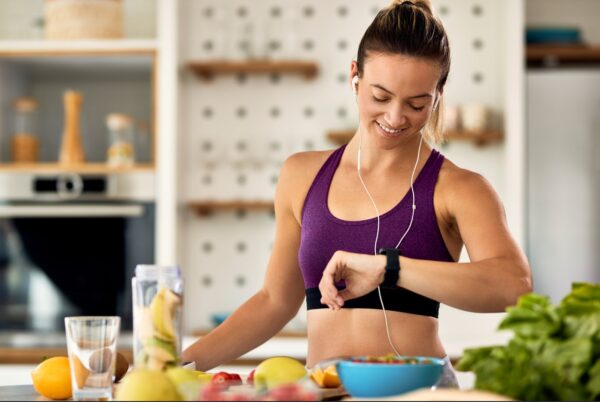
What you eat is crucial—but so is when. Pre-run meals, mid-run fueling, and post-run recovery all influence performance. Your goal isn’t just to eat “healthy”—it’s to eat strategically.
Before a run: Focus on easy-to-digest carbs and a bit of protein, eaten 2–3 hours before. Think oatmeal with banana or toast with peanut butter. Avoid too much fiber or fat to prevent stomach issues.
During the run (if over 75 minutes): Take in 30–60g of carbs per hour. This could be gels, sports drinks, chews, or even a banana. Practice during training to avoid GI distress on race day.
After the run: Aim for a 3:1 ratio of carbs to protein within the hour. Chocolate milk, protein shakes with fruit, or a rice bowl with beans and veggies are great options.
Fueling isn’t just about muscles—it’s about focus, energy, and the joy of running well.
Use the table here:
🥗 What to Eat Before, During, and After a Run
| 🕒 When | ✅ Goal | 🍽️ What to Eat | 💡 Examples |
|---|---|---|---|
| Before Your Run | Fuel muscles with easy energy | – Simple carbs – Small protein – Low fat & fiber |
– Banana with peanut butter – Toast with honey – Oats with syrup |
| 30–90 mins prior | – Yogurt with berries | ||
| During Your Run | Sustain energy & stay hydrated | – 30–60g carbs/hour – Electrolytes |
– Energy gels or chews – Sports drink – Dates or raisins |
| (Over 60 mins) | – Banana halves – Salted pretzels |
||
| After Your Run | Replenish, recover & rehydrate | – Carbs to restore glycogen – 15–25g protein – Fluids & electrolytes |
– Chocolate milk – Protein smoothie – Rice bowl with chicken & veg |
| Within 30–60 mins | – Whole grain wrap with eggs & spinach |
🎯 Quick Nutrition Tips
-
Focus on carbs pre-run, carbs + electrolytes mid-run, and protein + carbs post-run.
-
Always practice fueling in training, not just on race day.
-
Stay hydrated, especially in warm conditions.
💧 Hydration – More Than Just Water
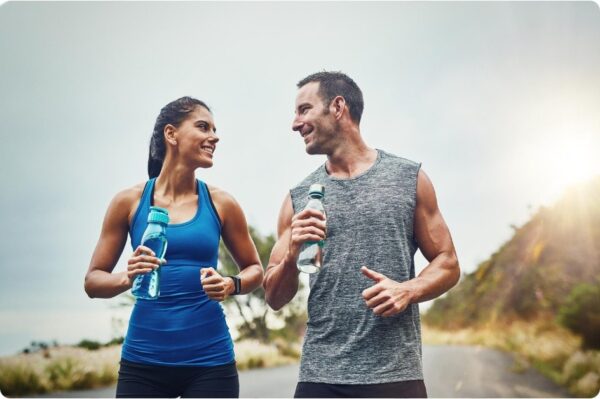
Runners lose more than just fluids when they sweat. They lose electrolytes—sodium, potassium, magnesium—that keep the body functioning smoothly. Without them, even a well-fueled run can quickly unravel into cramps, fatigue, or dizziness.
Start hydrated. Sip water throughout the day, not just right before your run. During long sessions, add an electrolyte drink or tablet, especially in hot weather. Afterward, rehydrate with a mix of water and electrolytes to replenish losses.
Coconut water, sports drinks, or water with added sea salt and lemon all help. Listen to your thirst, monitor your urine color (pale yellow is good), and adjust for your sweat rate. Hydration is dynamic—not a one-size-fits-all plan.
🧠 Mindful Eating – Fueling Body and Soul
Running teaches us to listen to our bodies—and so does mindful eating. Instead of rigid calorie counts or fad diets, tune in. Ask: What am I hungry for? How does this food make me feel during and after a run?
A runner’s diet shouldn’t be punishment or restriction. It’s a celebration of what your body can do. Enjoy food slowly, chew well, and savor flavors. The occasional pizza, brownie, or glass of wine? They have a place too. Mental fuel matters just as much as physical.
When we eat with intention—honoring hunger, balancing nutrients, and trusting our bodies—we fuel more than just muscles. We fuel motivation, joy, and a lifelong love of movement.
🧪 Supplements – When Food Alone Isn’t Enough
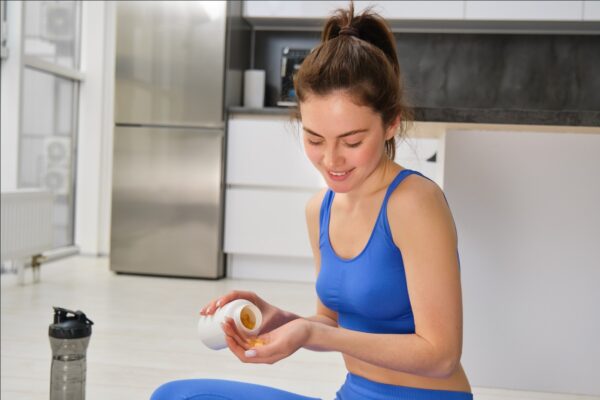
For most runners, a well-rounded diet covers your nutritional needs. But sometimes, supplements help fill the gaps—especially if you’re training hard, follow a restrictive diet, or have specific deficiencies.
Common supplements for runners include:
-
Iron – for those with low ferritin or anemia
-
Vitamin D – especially in winter or for indoor runners
-
Magnesium – to aid in muscle recovery and sleep
-
Omega-3s – for inflammation and joint health
-
Protein powders – for post-run recovery if whole foods aren’t available
Always speak with a healthcare provider before starting new supplements. And remember: they should supplement your diet, not replace it.
📝 Sample Meal Plan – Fuel for a Training Day
Here’s a sample day for a mid-week training run:
-
Breakfast: Oatmeal with almond butter, chia seeds, berries, and a boiled egg
-
Mid-Morning Snack: Banana and a handful of almonds
-
Lunch: Quinoa salad with chickpeas, avocado, roasted veggies, and olive oil dressing
-
Pre-run Snack: Whole grain toast with honey and a few dates
-
Post-run: Smoothie with banana, protein powder, spinach, and oat milk
-
Dinner: Grilled salmon, brown rice, steamed broccoli, and a side of sweet potatoes
-
Evening Snack: Greek yogurt with honey and walnuts
This plan includes all macros, spreads protein throughout the day, and supports both performance and recovery.
🧡 Final Thoughts – You Are What You Repeatedly Eat
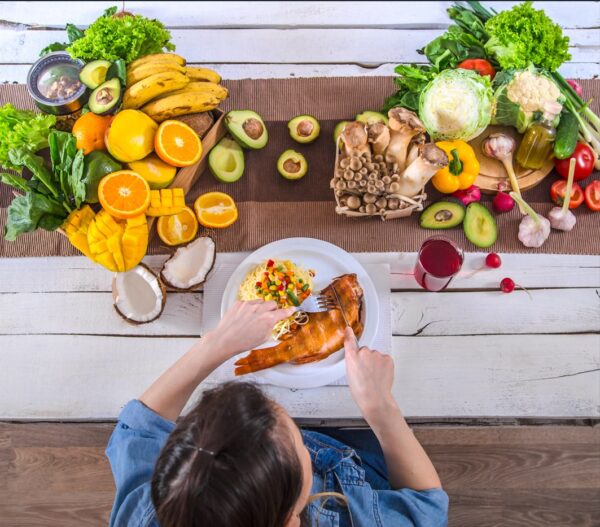
Running is a beautiful ritual—and your nutrition should match that rhythm. The meals you eat, the snacks you choose, and the water you sip are all acts of care. Small, daily investments that make the miles smoother and the journey more joyful.
Your runners diet isn’t just about race day. It’s about today. This moment. Fuel well, recover with kindness, and trust that your body will carry you—one mindful bite at a time.
💬 FAQ (3 short entries):
Q: Should I carb-load before every long run?
A: No, save full carb-loading for race week. Just ensure your glycogen stores are replenished before making big efforts.
Q: What if I run early and can’t eat a full meal?
A: Try half a banana, toast, or a small energy chew—something light and fast-digesting.
Q: Do I need sports drinks or can I use real food?
A: Both work. It depends on what your stomach tolerates. Practice during training to find what works for you.
🥣 What’s your go-to pre-run meal or favorite recovery snack?
Share your tips or questions about a runner’s diet in the comments below — let’s fuel the conversation together!

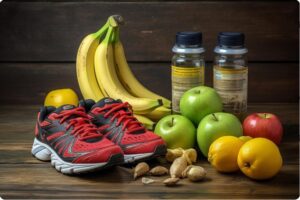
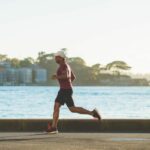
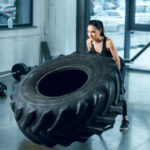
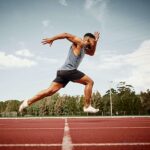
Thank you for a very informative article. I want to start running so this information is most useful for me and made me aware of what nutrients I should specifically incorporate into my diet for best results, and maintaining good health. I see you have given a lot of different food suggestions but do you follow a specific diet or meal plans or do you just eat whatever you like that has the relevant nutrients?
Hi Jenny
Thank you for your comment. I really appreciate it.
I’m not always follow a specific meal plan on a daily basis. I have developed a habit eating the right healthy meals that works for me. Ex. I eat a lot of pasta and rice.
Be well
The typical marathon runner will need to consume thousands of calories on race day to power his or her high-intensity run. A few hours before any long run, eat a meal high in low carbohydrates, moderate in protein and low in fat to give your body all the nutrients it needs for the next few hours. Porridge with fruits, a chicken sandwich and fruit or a bagel and peanut butter are good options.
Hi Philebur
Thank you for the comment. Now I get hungry.
You have to find out what fits best to you by trying. We are different persons but carbohydrate will be on top of the list and on race day you can use ex. gels if you have trained it over a couple of months, or you risk stomach challenges during the race.
Be well